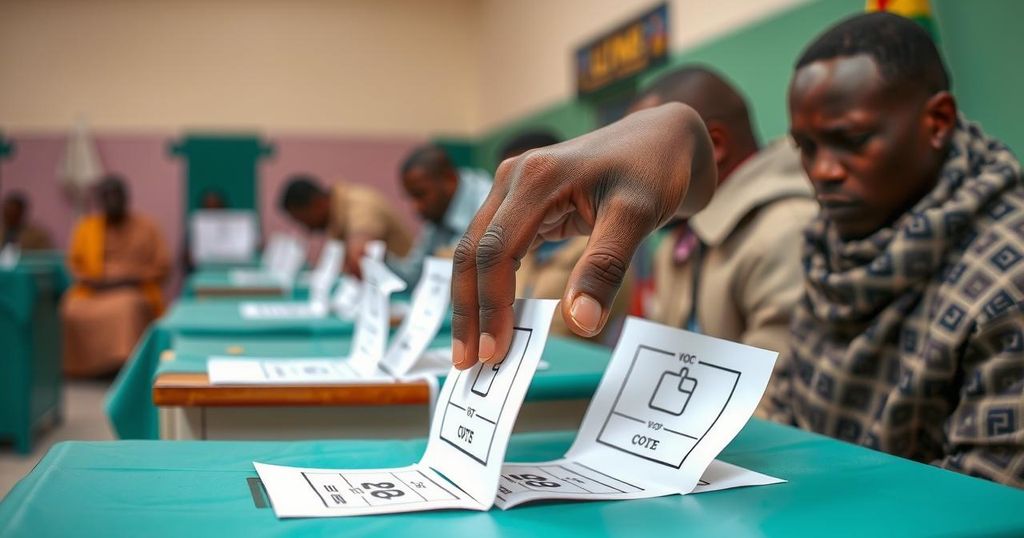Chad’s First Parliamentary Election in 13 Years Faces Opposition Boycott

Chad is conducting its first parliamentary election in 13 years amidst a boycott by opposition parties. While the government seeks to promote these elections as a gateway to democracy, turnout has been low and allegations of fraud are prominent. The political landscape illustrates a tension between hope for change and widespread disillusionment within the electorate.
Voting has commenced in Chad for the first parliamentary election in over a decade, which the government presents as a crucial move towards the restoration of democratic governance following years of military control. Voters are tasked with selecting new members for the National Assembly, provincial assemblies, and local councils in Chad, one of the world’s economically challenged nations. Despite the government’s efforts, opposition parties have called for a boycott, claiming that the elections are predetermined and illegitimate, leading to low voter turnout, particularly in the capital, N’Djamena.
Following the opening of polling stations, the electoral officials attributed the lack of enthusiasm among voters to unfavorable weather conditions. Opposition leaders have urged citizens to reject what they describe as a sham process, suggesting the outcomes have already been manipulated. This boycott may facilitate the success of candidates aligned with current President Mahamat Idriss Deby Itno, whose leadership was legitimized after his election in May.
In defiance of the opposition’s call, some voters expressed hopes for change. Individuals such as Patrice Lumumba Deoumoundou articulated desires for improved job opportunities and greater equality, despite feeling disillusioned that transformation has yet to occur. Meanwhile, electoral agency reports indicated a noteworthy turnout among military personnel and nomadic communities, asserting a record participation rate in their voting processes.
As polling proceeded with oversight from foreign observers, dilemmas persisted, including allegations of ballot tampering and the disappearance of over 1,000 ballots from a specific precinct, sparking concerns about electoral fraud. The backdrop of these elections is further complicated by ongoing violence from Boko Haram and geopolitical tensions in the region, including recent shifts in military agreements with France.
Overall, the Chadian government positions these elections as a pivotal step toward re-establishing democracy in the country after years of authoritative rule, igniting both hope and skepticism among voters and observers alike.
The parliamentary election in Chad marks a significant event in the nation’s political landscape, being the first in thirteen years. Following the military takeover in 2021 after the death of long-time ruler Idriss Deby, the government has attempted to reframe its legitimacy through these elections. However, the opposition’s widespread call for a boycott reflects deep-seated skepticism towards the electoral process, viewed by many as manipulated and untrustworthy. The elections occur at a time of socio-economic difficulties, ongoing violence, and external pressures, complicating the prospects for a genuine democratic transition.
In summary, the ongoing parliamentary elections in Chad are characterized by a significant boycott led by opposition parties who challenge the legitimacy of the electoral process. Despite appeals for voter participation from President Deby and some hopeful citizens, the prevailing atmosphere of distrust and apprehension about potential electoral fraud eclipses the election. As Chad navigates its path toward democracy, these elections symbolize both a critical opportunity for change and a profound challenge amidst lingering socio-political uncertainties.
Original Source: www.aljazeera.com







